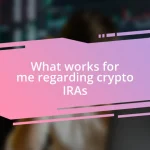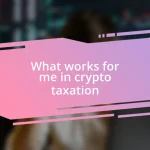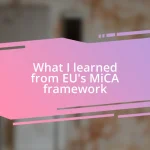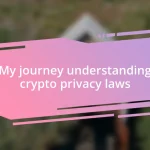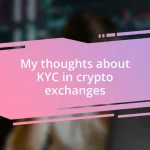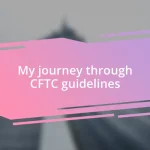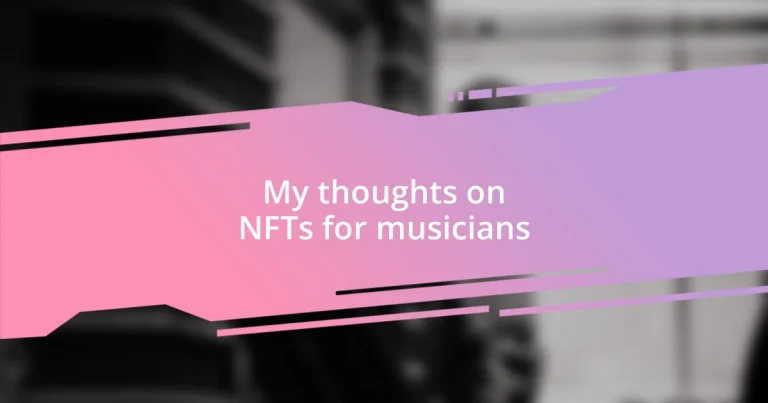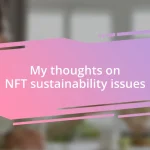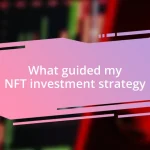Key takeaways:
- NFTs enable musicians to create unique digital items, allowing for direct fan engagement and the potential for ongoing royalties from secondary sales.
- Marketing strategies, such as leveraging social media, collaborations with artists, and hosting virtual events, can significantly enhance the visibility and success of music NFTs.
- Legal considerations, including copyright ownership, smart contract terms, and tax implications, are crucial for musicians to understand before entering the NFT space.
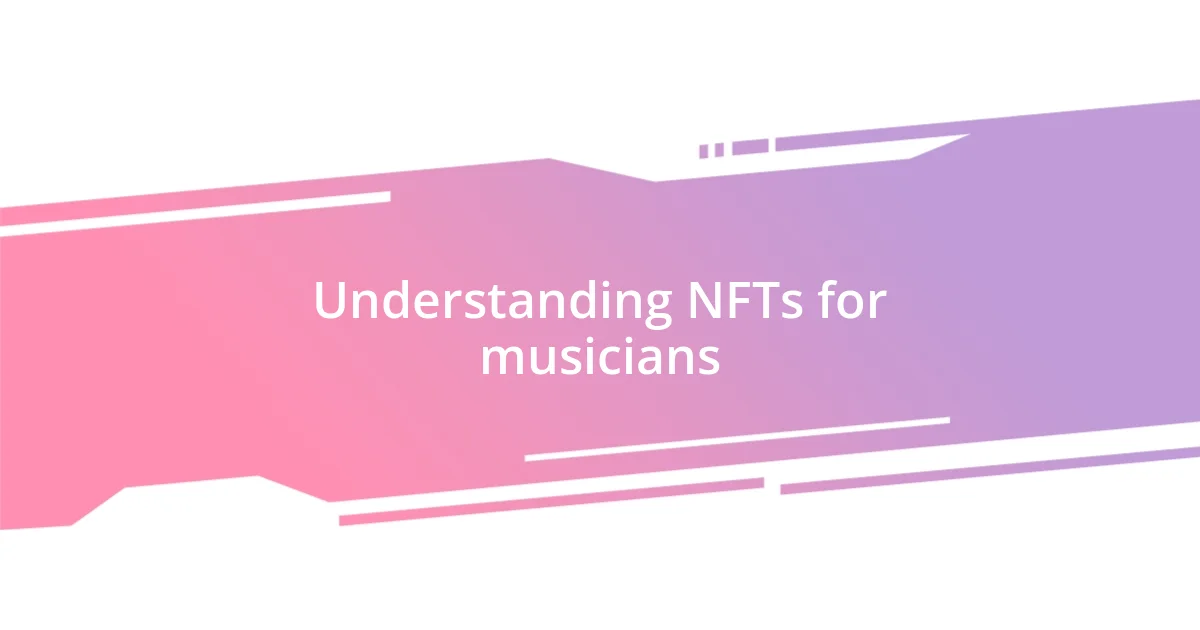
Understanding NFTs for musicians
NFTs, or non-fungible tokens, represent ownership of unique digital items, which can open fascinating possibilities for musicians. I remember the first time I heard about an artist selling their music as an NFT; it made me feel genuinely excited about how musicians could harness technology to redefine ownership and direct engagement with their fans. Imagine being able to create limited editions of a song or exclusive behind-the-scenes content—how awesome would that be for deepening your connection with your audience?
Digging deeper, I find that one of the most significant aspects of NFTs is the ability for artists to earn royalties on secondary sales. This means that every time your NFT is sold after the initial purchase, you receive a percentage of that sale. It struck me as a game-changer, especially for new musicians trying to navigate the challenging music industry landscape. Who wouldn’t want a continuous revenue stream from their art?
However, not everything feels bright and shiny in the NFT world. I’ve seen some musicians struggle to understand the technology behind NFTs or how to price their work effectively. It’s critical to take the time to learn and connect with platforms that genuinely support artists. What are your thoughts on diving into this tech-savvy arena? It can be daunting, certainly, but the potential for creative expression and financial empowerment is hard to ignore.
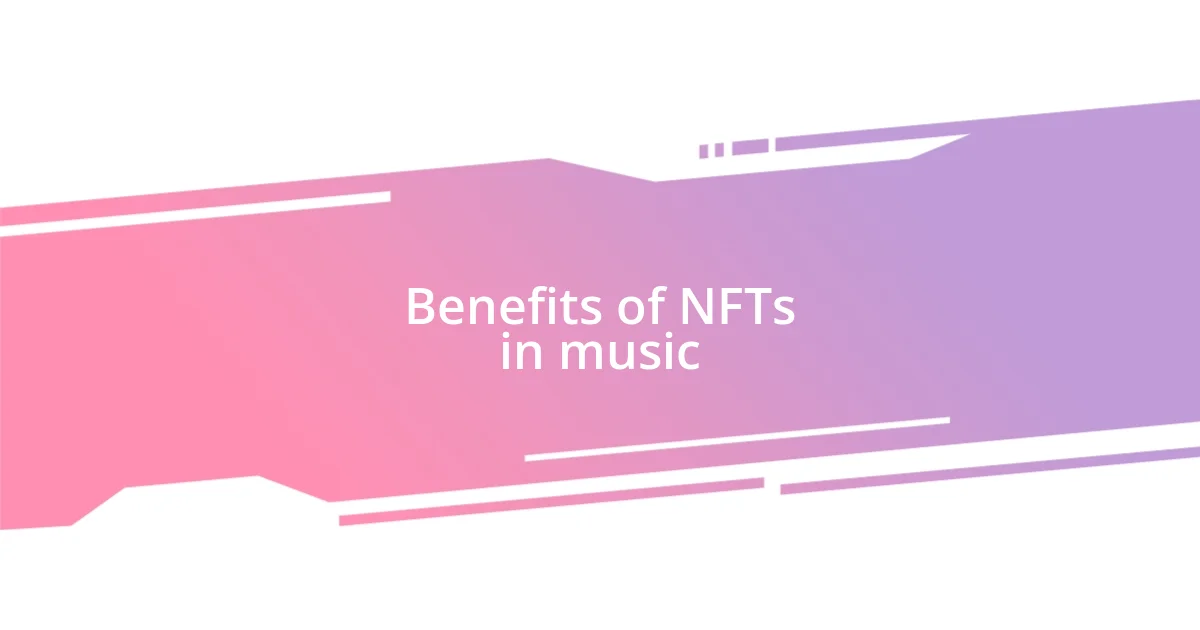
Benefits of NFTs in music
One of the most exciting benefits of NFTs in music, in my experience, is the ability to create a deeper emotional connection with fans. When I watched a musician auction off an exclusive track as an NFT, I realized how unique it felt for fans to have ownership of something truly special. This kind of engagement can transform the traditional listener-artist relationship into a more intimate experience, fostering loyalty and dedication among fans.
Here are some advantages of NFTs for musicians:
- Direct Revenue Streams: Artists can sell their work without intermediaries, leading to higher profits.
- Royalties on Resales: Musicians can earn a percentage every time their NFT is resold, creating ongoing income.
- Unique Fan Experiences: Exclusive content can be offered, such as private concerts or limited edition releases.
- Creative Freedom: Artists can experiment with new formats and ideas, pushing the boundaries of their art.
- Global Reach: NFTs allow musicians to connect with a worldwide audience, broadening their fan base.
Reflecting on these benefits makes me think about the potential for emerging artists in this digital landscape. I recently spoke to a friend who’s a budding musician, and seeing their excitement as they explored creating NFT art made me realize how transformative this can be for those just starting out. It’s an innovative way to reclaim agency over their craft and build a community that truly supports them.
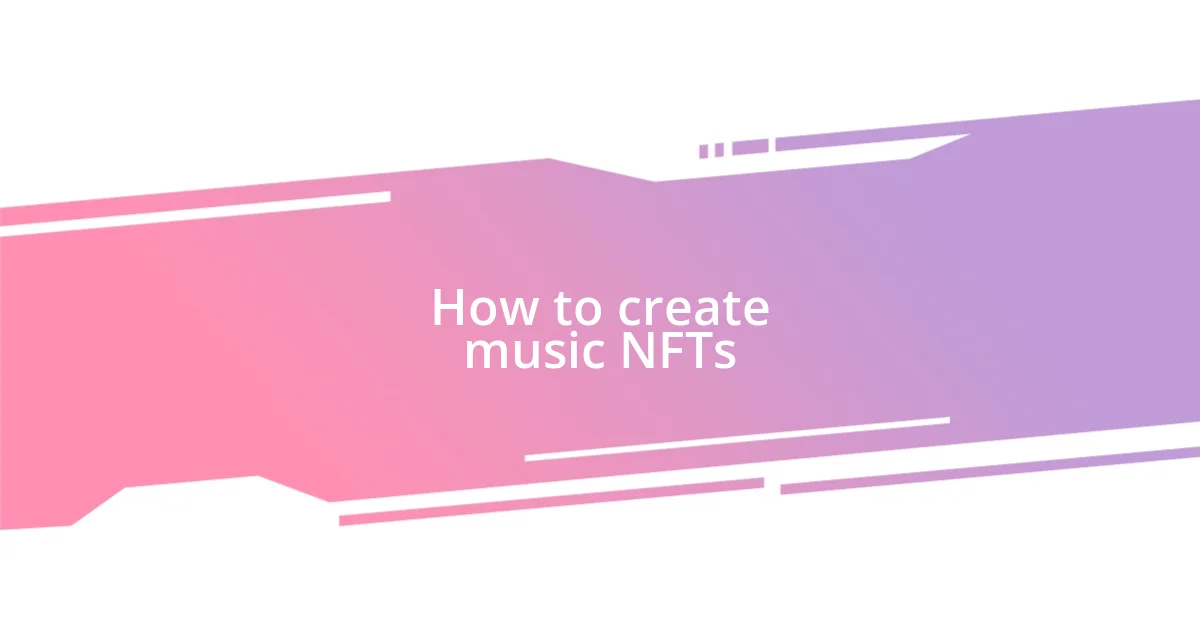
How to create music NFTs
Creating music NFTs can seem like a daunting task at first, but once you break it down, it becomes much more manageable. You’ll want to start by selecting a blockchain platform that supports NFT creation, like Ethereum or Binance Smart Chain. Personally, I found Ethereum to be quite user-friendly, offering plenty of resources and guidance for artists. After that, you create a wallet to hold your NFTs and link it to your chosen platform.
The next step is to mint your NFT, which means turning your music files into a unique token. During my own experience minting an NFT, I had to decide on the file format, whether I wanted to include album art, and how to define rarity. I even offered different tiers for the NFT, such as including a signed digital image or exclusive behind-the-scenes content. This added value and excitement for potential buyers, something I highly recommend. How do you envision your music NFTs standing out in the crowd?
Once you’ve minted your NFT, it’s time to promote it! Sharing your NFT on social media platforms, as well as engaging directly with your fanbase, can do wonders. I noticed a considerable uptick in interest when I hosted a live Q&A, discussing my upcoming NFT drop. Remember, the goal is to connect with emerging fans and collectors, making them feel part of the journey.
| Step | Description |
|---|---|
| Choose a Blockchain | Select platforms like Ethereum for easy minting. |
| Create a Wallet | Set up a digital wallet to hold your NFTs. |
| Mint the NFT | Transform your music files into unique tokens. |
| Promote Your NFT | Build buzz through social media and direct fan engagement. |
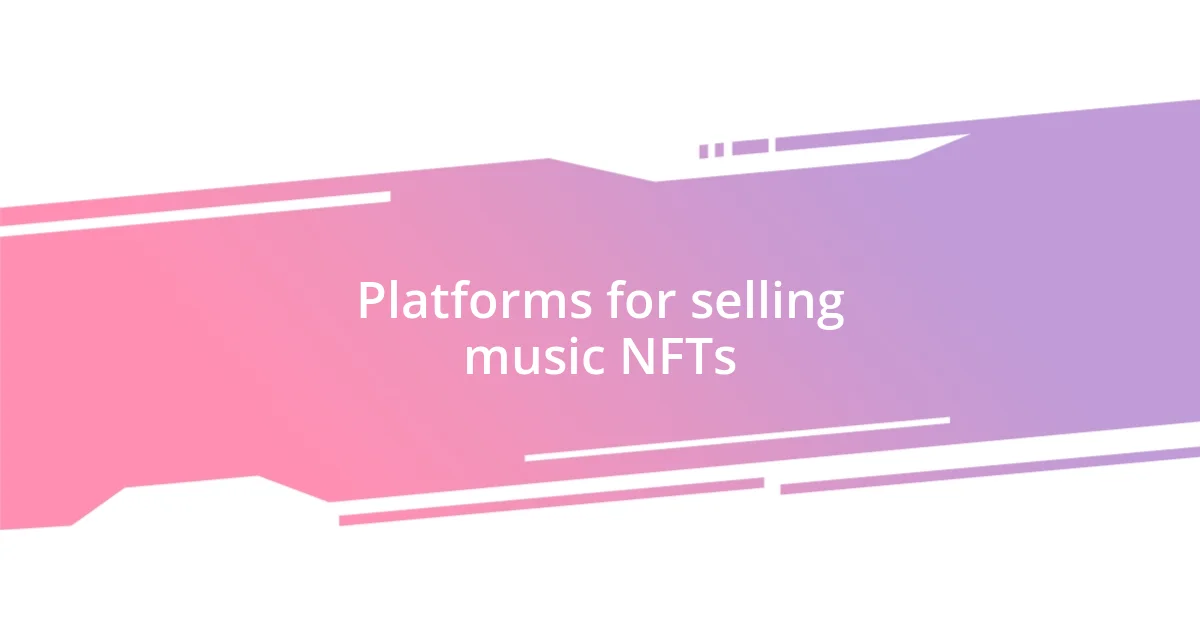
Platforms for selling music NFTs
When it comes to selling music NFTs, there are several specialized platforms that can help artists connect with their audience. For instance, I’ve found platforms like OpenSea and Rarible incredibly user-friendly, as they allow musicians to easily list their unique creations for sale. I remember the thrill of seeing my first NFT listed there—it’s an exhilarating feeling to have your work showcased to potential buyers worldwide.
Another noteworthy platform is Audius, which is specifically designed for musicians. I was amazed at how it combines streaming with NFT selling, enabling artists to get discovered while also monetizing their work. It feels like a game-changer, particularly for independent musicians who want to build a loyal fanbase while keeping control of their art.
Then there’s Mintbase, which I discovered flows seamlessly with creative ventures. What truly stood out for me was the community aspect; it allows artists to collaborate on NFTs, sharing both exposure and revenue. Have you considered how collaborating on an NFT might expand your reach and creativity? I’m excited to see how artists leverage these platforms to not only generate income but also deepen their connection with fans.
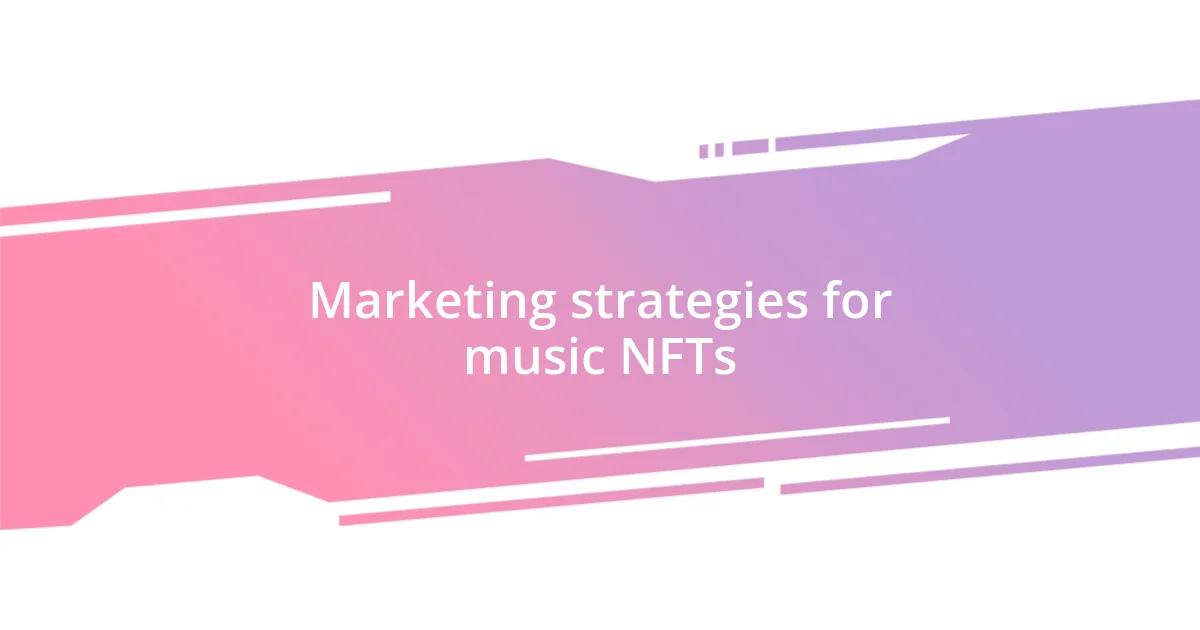
Marketing strategies for music NFTs
Finding the right marketing strategy for music NFTs can really make a difference in your success. I remember when I first released my music NFT; I decided to create a pre-launch buzz by teasing snippets of the track on Instagram. This not only piqued interest but also encouraged my fans to engage with the content and anticipate the drop, which created a sense of community and excitement.
One essential strategy is leveraging collaborations with other artists or influencers in the NFT space. When I teamed up with a visual artist to create a multimedia NFT, our combined fanbases helped broaden our reach significantly. Have you thought about how partnerships could amplify your visibility? Working together not only brings fresh ideas but also fosters a sense of kinship among creators and fans alike.
Lastly, hosting virtual events around your NFT launch is a powerful way to rally your community. I hosted a live listening party and incorporated an interactive Q&A session where fans could ask questions about the creation process. This personal touch made the experience memorable and deepened my connection with supporters. How might you make your NFT launch feel special for your audience? Remember, the more personal the experience, the more likely fans will invest in your work.
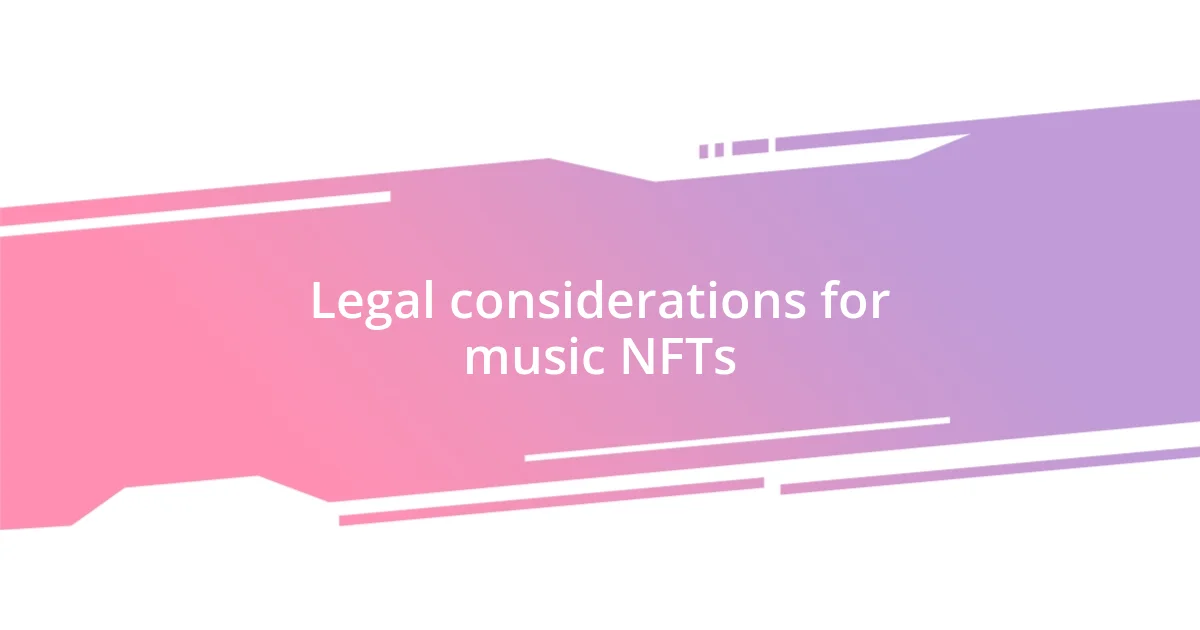
Legal considerations for music NFTs
When diving into the realm of music NFTs, it’s crucial to grasp the legal considerations surrounding them. One primary concern is copyright—ensuring you own the rights to the music or artwork you’re tokenizing. I’ve seen fellow musicians mistakenly assume that simply creating an NFT of a song means they automatically hold all rights, but that’s not always the case. Clarifying copyright ownership from the start is essential to avoid disputes down the line.
Another important aspect is contract law, especially when it comes to smart contracts on the blockchain. I remember setting up my first NFT and realizing I needed to specify terms related to resale royalties or usage rights. Without these details outlined in your smart contract, you might miss out on income from future sales—something I learned the hard way. Can you imagine creating something incredible only to lose out because the terms weren’t explicit?
Finally, keeping track of tax implications is vital when dealing with music NFTs. I discovered that the profits from my NFT sales were considered taxable income, which added a layer of complexity I hadn’t anticipated. Have you thought about how this could impact your financial planning? Understanding how to report these earnings properly can save a lot of headaches later, ensuring you stay compliant and make informed financial decisions.
